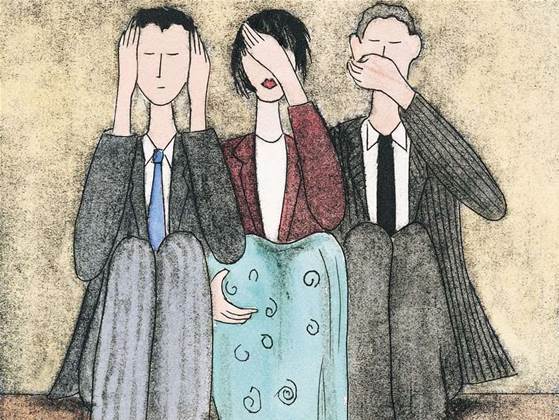Shadow Treasurer Joe Hockey has earned a rare feat for a Liberal Party politician - a glowing report from Electronic Frontiers Australia (EFA) for his stance against the Federal Government's proposed mandatory ISP-level internet filtering scheme.

Unlike shadow communications minister Tony Smith, who has struggled to form a policy on just about anything, Hockey came out as a clear opponent of the internet filtering bill in a speech delivered to the Grattan Institute last night.
Describing Senator Conroy's plan as "unworkable", Hockey said Australia would be better served by returning to a scheme in which parents could choose what level of filtering required for their children.
"We see the current Federal government seeking to introduce laws that will effectively censor the Internet," he said. "Of course we all want to stop unlawful material being viewed on the Internet. There are appropriate protections that are in place for that.
"But I have personal responsibility as a parent. If I want to stop my children from viewing other material that I feel is inappropriate then that is my responsibility to do something about it - not that of the government."
Hockey said any policy on filtering would have to consider the potential for scope creep.
"Perniciously, it is a scheme that will create the infrastructure for government censorship on a broader scale," he said. "Protecting liberty is about protecting freedoms against both known and future threats."
The EFA applauded Hockey's speech in a statement to the press today.
"Mr Hockey correctly identified several of the fundamental problems in the Government's mandatory Internet filtering policy," said Peter Black, EFA's campaign manager. "Most importantly that the filter will not stop children from accessing inappropriate content and will not prevent criminals from accessing and distributing sexual abuse material."
The EFA is encouraging opponents of the filtering scheme to participate in a lobbying effort ('Lobby a Lib') to convince the rest of the Liberal Party to adopt Mr Hockey's position.
"It is looking increasingly likely that our best chance to stop the filter from ever becoming law is to convince the Liberal Party to vote against in the Senate," said Black. "That is why we are encouraging people who disagree with the Government's impractical and costly policy of Government censorship, to visit or write to Liberal Party Members of Parliament or Senators."



_(28).jpg&h=140&w=231&c=1&s=0)
_(23).jpg&h=140&w=231&c=1&s=0)






 iTnews Benchmark Awards 2026
iTnews Benchmark Awards 2026
 iTnews Executive Retreat - Security Leaders Edition
iTnews Executive Retreat - Security Leaders Edition
 iTnews Cloud Covered Breakfast Summit
iTnews Cloud Covered Breakfast Summit
 The 2026 iAwards
The 2026 iAwards











_(1).jpg&h=140&w=231&c=1&s=0)



